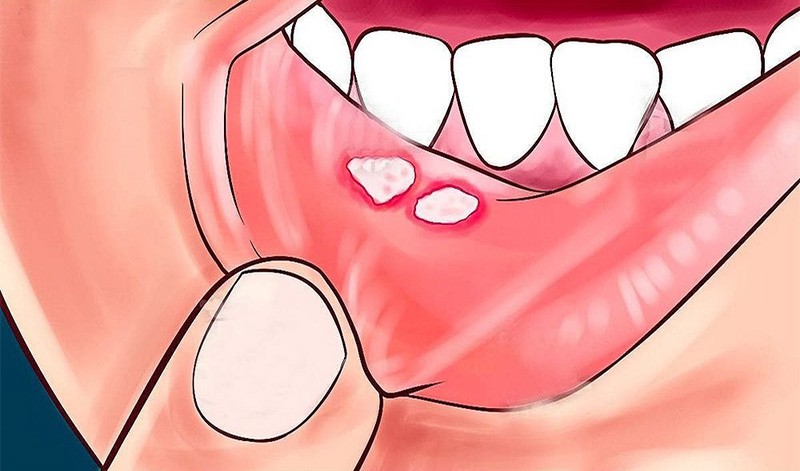Dealing with canker sores can be a painful and frustrating experience. These small, shallow ulcers that appear in the mouth can make eating, speaking, and even smiling a challenge. While there’s no overnight cure for canker sores, there are several strategies you can employ to alleviate discomfort, promote healing, and prevent future occurrences. In this comprehensive guide, we’ll explore the causes, symptoms, and a range of proven methods to effectively manage and heal canker sores.
Understanding Canker Sores
Canker sores, also known as aphthous ulcers, are painful lesions that develop inside the mouth on the soft tissues, such as the gums, tongue, lips, and the inside of the cheeks. They’re different from cold sores (fever blisters), which occur on the outer edge of the lips and are caused by the herpes simplex virus.
Causes:
The exact cause of canker sores remains elusive, but factors such as stress, injury to the mouth, certain foods, hormonal changes, and even underlying health conditions can trigger their appearance. Typically, they appear when you’re tired, stressed, and malnourished. Large doses of sun and alcohol consumption can also be culprits. Within the last few years, there have been studies indicating that sodium lauryl sulfate (SLS), an ingredient present in toothpaste can predispose one to canker sores.
Symptoms:
Canker sores usually start as a small red bump that evolves into an open ulcer with a white or yellowish center. They’re often accompanied by a tingling or burning sensation and can be painful, especially when irritated by eating, drinking, or brushing.
Effective Strategies for Curing Canker Sores
- Maintain Oral Hygiene: Gentle oral care is crucial to prevent infection and promote healing. Use a soft-bristle toothbrush and avoid aggressive brushing, as it can further irritate the sores. Rinse your mouth with salt water or ozonated water to keep the area clean and reduce discomfort. Remove any chemicals products from your oral hygiene routine and make sure you use natural organic products.
- Natural Remedies: Several natural remedies can help alleviate pain and promote healing. These include applying aloe vera gel, chamomile tea bags, or honey directly to the sores. Coconut oil and turmeric paste also possess anti-inflammatory and antimicrobial properties that can aid in the healing process.
- Avoid Irritating Foods: Spicy, acidic, and rough-textured foods can exacerbate the pain and irritation of canker sores. Opt for a diet rich in soft, bland foods and avoid triggers like citrus fruits, tomatoes, and nuts until the sores heal.
- Manage Stress: Stress is a common trigger for canker sores. Incorporate stress-reduction techniques into your daily routine, such as yoga, meditation, deep breathing, or engaging in hobbies you enjoy.
- Topical Analgesics: Over-the-counter creams and gels that contain ingredients like benzocaine or lidocaine can provide temporary pain relief by numbing the affected area. Apply them as directed on the packaging.
- Oral Rinses: Salt water or baking soda rinses can help soothe pain and promote healing. Mix a teaspoon of salt or baking soda in a glass of warm water and rinse your mouth gently a few times a day.
- Vitamin and Mineral Supplements: Deficiencies in certain vitamins and minerals, like vitamin B12, iron, folic acid, and zinc, can contribute to canker sore outbreaks. Consult a healthcare professional before taking any supplements.
- Preventive Measures: To prevent future outbreaks, identify and avoid triggers that have caused canker sores in the past. Maintain good oral hygiene, manage stress, and consider using a soft-bristle toothbrush.
- Doctor Roze’s twist: We would recommend Ozonated water with sea salt and a drop of tea tree oil to alleviate your ulcers in the mouth.
When to Seek Professional Help
Most canker sores heal on their own within one to two weeks. However, if you experience unusually large, persistent, or recurring sores, it’s advisable to consult a healthcare provider. Additionally, seek medical attention if your sores are accompanied by fever, difficulty swallowing, or excessive pain that hinders daily activities.
General must-know facts about canker sores:
- Common Oral Lesions: Canker sores, also known as aphthous ulcers, are one of the most common oral lesions. They affect millions of people worldwide.
- Prevalence: Approximately 20% of the population experiences canker sores at some point in their lives.
- Age and Gender: Canker sores can occur at any age but are more common in individuals between the ages of 10 and 40. They are slightly more prevalent in women than men.
- Recurrent Nature: Canker sores can be recurrent, with some individuals experiencing them multiple times a year.
- Painful Symptoms: Canker sores typically cause pain, discomfort, and soreness in the mouth, making activities like eating and speaking painful.
- Duration: Most canker sores heal within one to two weeks without scarring.
- Size and Appearance: They often appear as round or oval sores with a white or yellowish center and a red border.
- Trigger Factors: While the exact cause is not always clear, canker sores can be triggered by factors such as stress, injury, hormonal changes, certain foods (e.g., citrus fruits), and allergies.
- Treatment Options: Over-the-counter and prescription medications, as well as home remedies, can help alleviate pain and promote healing.
- Consulting a Healthcare Professional: Persistent or unusually large canker sores should be examined by a healthcare provider to rule out underlying medical conditions.
For up-to-date statistical data on canker sores, it’s best to refer to healthcare or medical research websites, such as the World Health Organization (WHO) or the Centers for Disease Control and Prevention (CDC), or consult scientific studies and medical journals.


